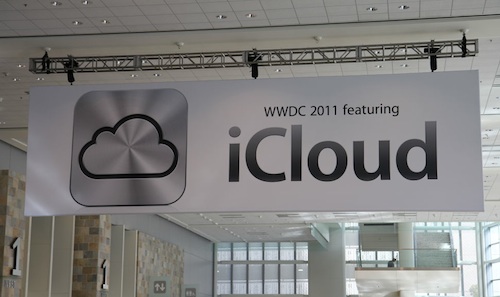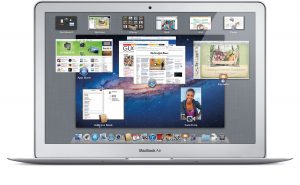
Apple CEO Steve Jobs opened the company’s Worldwide Developers Conference on Monday, demoting the computer to “just a device” and talking up how it wants to “move your hub, the centre of your digital life, into the cloud”.
With Android gaining ground in the mobile operating system (OS) market, and Windows 8 looking set to capture ground in both the PC and mobile markets, Apple was expected to make big announcements when it unveiled its “Lion” update to Mac OS X, its new iOS 5 platform for iPhone and iPad and its cloud storage solution, iCloud.
The question is: did it deliver?
The first announcement concerned Lion. It includes more than 250 new features. The first, and possibly most interesting, is multi-touch gestures, a feature Apple admits it’s adapted from iOS.
Much like iOS, scrollbars are a thing of the past with Lion, and gestures like pinch-and-swipe have been incorporated into the new OS X on a wholesale basis. Gestures have also resulted in support for moving between multiple full-screen applications, in addition to the desktop — a feature that should please developers.
Lion also includes a feature called “Resume” which remembers the state of every application and window when it was closed so that users can return to that state when reopening them. It also stores the changes between sessions, much like Apple’s back-up application, Time Machine.
LaunchPad is another addition to Lion, which unifies Exposé and Spaces and offers users an icon-based interface similar to that of iOS. Thankfully, Apple’s Mail application has also been revamped, and somewhat resembles that of the iPad’s mail app. It includes a multiple column view, support for a conversation-based view, and the search functionality has been revamped.
Many of the other features are incremental improvements, but the value of the user interface improvements offered by gestures shouldn’t be underestimated. Set to launch in July, Lion is available only through the Mac App Store for US$29,99 as a 4GB download. As with other App Store purchases, users need only buy it once to use it on all of their devices.
As expected, Apple also announced iOS 5 at the conference. The App Store has enjoyed more than 14bn downloads in less than three years. Moreover, Apple boasts a customer pool of about 225m accounts.
One of the longest-running gripes about iOS has been the manner in which it handles notifications. Previously intrusive and distracting, notifications now mimic the slide-down menu of Android, and iOS 5 also includes a “Notification Center” where the applicable app can be accessed with a swipe. Users can also swipe to return to the Notification Center or to the desktop.
iOS 5 also includes a magazine and newspaper subscription manager app called Newsstand. It closely resembles iBooks and pushes new issues to your device for download so that they can be read offline.

With the growing popularity of Twitter, it’s little surprise that it is now built in to iOS 5 and interacts with other apps like camera, Safari and Maps. Safari also now offers tabbed browsing, a built-in reader that syncs information between devices, and the ability to strip pages of all except their essential content for quicker browsing and easier sharing. How Web masters and online ad-sales companies will respond to this latest feature remains to be seen.
Perhaps the most notable addition to iOS 5 is its inclusion of a reminders app (unimaginatively called “Reminders”) that includes GPS functionality, so a reminder can be set to notify a user when they are at a specific location or, as Apple puts it, when they cross a “geo-fence”.
A device-wide feature new to iOS 5 (but specific to the iPad) is enhanced keyboard functionality that splits the keyboard in half when in landscape view and makes it smaller to aid thumb typists. The Windows 8 previews that surfaced last week show similar keyboard functionality, further proof that Microsoft needs to work on getting its products to market quicker.
With Apple’s “Game Center” now boasting more than 50m users (which makes Xbox Live’s 30m subscribers pale in comparison) it’s no surprise that gaming has also received a makeover to allow for greater sociability between players by means of wireless gaming for multiple devices and support for turn-based games.
Much like voice-over-Internet Protocol threatens voice calls, instant messaging apps such as BlackBerry Messenger (BBM) are threatening SMS. Apple’s attempt at a BBM killer is iMessage: carried over 3G or wireless it pushes to all Apple devices, so a conversation started on an iPhone can be picked up on an iPad. If third-party developers can use iMessage’s functionality this could prove to be a big hit with consumers.
Apple in the cloud
Jobs took the stage to unveil iCloud, Apple’s cloud-based data hub that pushes information like mail, contacts and calendars to all devices, and syncs them. Replacing Apple’s failed MobileMe client, iCloud also works with iBooks and syncs device settings and app data.
As expected, iCloud is also a cloud-based back-up that can store your images and music. iCloud will support apps, books and music purchased through iTunes or the app store and offers users 5GB of free storage, with no mention made of what additional storage will cost.
While all images stored by iCloud will also be pushed to Macs, only the last 1 000 will be pushed to devices, and only over Wi-Fi — good news for consumers’ phone bills.
Arguably the biggest announcement of Monday’s keynote was that iCloud will also include iTunes for the cloud, which syncs all purchases through the iTunes store to users’ devices. For music people already own — but which comes from other sources — iTunes Match will allow them to stream or download the same songs from iTunes (as 256kbit/s AAC files) for an annual subscription of $24,99.
However, there was no mention of what happens once a customer cancels their iTunes Match subscription.
Also, while Apple claims its service will support up to 20 000 tracks, no mention was made of how this impacts the 5GB of free iCloud space users are afforded.
Subscription-based music services like Spotify that offer users access to enormous libraries of music for a nominal fee have already been dubbed the saviours of the music industry. As usual, Apple is doing its utmost to be the most appealing player in the space. If iCloud proves to be sound when it launches, it’ll certainly be one of the frontrunners. — Craig Wilson, TechCentral
- Subscribe to our free daily newsletter
- Follow us on Twitter or on Facebook




